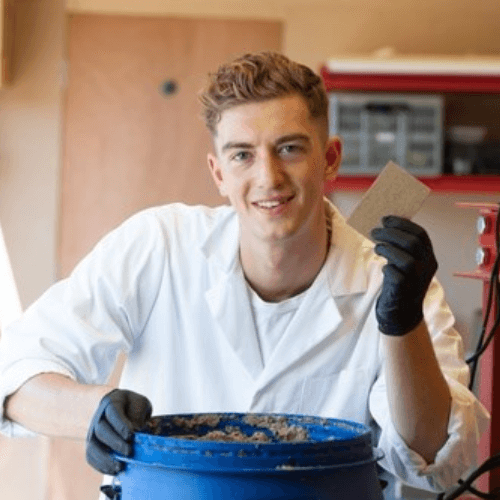In a global analysis of all the plastic ever made, the peer-reviewed journal Science Advances estimated that of the 8.3 billion tonnes that has been produced, 6.3 billion tonnes has become plastic waste. With only 9% recycled, the vast majority is accumulating in landfills or in the natural environment as litter. If present trends continue, by 2050, there will be 12 billion tonnes of plastic in landfills.
Many feel that a circular economy that considers the end destination of what is manufactured would help manage material production responsibly. From buttons to car doors, and spectacles to countertops, the use of sustainable alternatives to petroleum plastics would offer multiple plastic end-of-life scenarios.
Rowan Minkley, is the Co-Founder and CEO of Chip[s] Board. Chip[s] Board is a bioplastic technology company that converts food waste into bioplastics. It currently produces polymers and composites. The composites are natural-fibre reinforced melt blends for applications such as furniture, fashion and consumer electronics.

The company has developed a process to convert waste food by-products into a trademarked bioplastic called Parblex®. The main ingredient for this is upcycled potato scraps, supplied by the global food processing giant McCain Foods. By combining this with natural fibres, biobased composites can be made that are biodegradable and recyclable at the end of their product life. Parblex® is compatible with injection moulding, 3D printing, milling and other industrial processing techniques.
Rowan says: “Many current bioplastics are produced from virgin food crops – such as corn or sugar beet – that are grown specifically to create the materials needed for creating the bioplastic substance. Our philosophy is that a circular economy within waste (by-product) management and material production will create a new sustainable model, utilising the abundant resources we already have rather than continuing to process virgin materials.”
Chip[s] Board’s team is currently looking into the waste stream to find new materials to upcycle and diversify their product lineup.
Associated Programme
Launchpad Competition

